Navigating Mortgages After Chapter 13 Bankruptcy: A Comprehensive Guide
Experiencing a Chapter 13 bankruptcy can be a challenging and overwhelming process. However, it doesn’t have to mean the end of your homeownership dreams. In fact, many individuals emerge from bankruptcy ready to pursue a mortgage and buy a home. This article will provide a detailed overview of how to obtain a mortgage after filing for Chapter 13 bankruptcy, including the eligibility criteria, necessary steps, and practical tips for success.
Understanding Chapter 13 Bankruptcy
Chapter 13 bankruptcy is a legal process that allows individuals with a regular income to reorganize their debts and create a repayment plan to pay them off over time, typically within three to five years. Unlike Chapter 7 bankruptcy, which discharges debts, Chapter 13 allows individuals to keep their assets while making manageable monthly payments to creditors.
Impact on Credit
While Chapter 13 bankruptcy will have a negative impact on your credit score, it is often less severe than Chapter 7. The bankruptcy will remain on your credit report for seven years from the filing date, but responsible financial behavior post-bankruptcy can gradually help rebuild your credit score.
Eligibility for a Mortgage After Chapter 13 Bankruptcy
Timing Considerations
One of the first things to understand is the timing of your eligibility for a mortgage after filing for Chapter 13 bankruptcy:
•Waiting Period: The standard waiting period for obtaining a conventional mortgage after completing a Chapter 13 repayment plan is typically two years. However, you may be eligible for an FHA loan sooner—usually within one year of the discharge of your Chapter 13 case, provided you have maintained good payment history during the repayment plan.
Conditions to Meet
1.Completion of the Repayment Plan: Most lenders require that you have completed your Chapter 13 repayment plan successfully before considering you for a mortgage.
2.Good Payment History: Maintaining a consistent payment history during your bankruptcy repayment plan is crucial. Lenders want to see that you are responsible with your financial obligations.
3.Income Stability: You must demonstrate a stable income sufficient to support your mortgage payments, along with any existing debt obligations.
4.Credit Score: While the exact credit score requirements can vary by lender and loan type, aiming for a score of at least 580 is generally a good target, especially for FHA loans.
Steps to Obtain a Mortgage After Chapter 13 Bankruptcy
1. Understand Your Credit Situation
Before applying for a mortgage, obtain a copy of your credit report. Check for any inaccuracies and dispute any errors you find. Understanding your credit standing will help you identify areas that need improvement.
2. Maintain Consistent Payments
During your Chapter 13 repayment period, ensure that you make all required payments on time. This not only helps fulfill your bankruptcy obligations but also demonstrates to future lenders that you are reliable.
3. Gather Necessary Documentation
When you’re ready to apply for a mortgage, prepare the following documents:
•Proof of Income: This may include pay stubs, tax returns, and bank statements to demonstrate your financial stability.
•Bankruptcy Documentation: Be prepared to provide documentation related to your Chapter 13 bankruptcy, including the discharge papers and repayment plan.
•Credit Reports: Lenders will typically pull your credit reports, but having your own copies can help facilitate discussions.
4. Seek Pre-Approval
Before you start house hunting, consider getting pre-approved for a mortgage. Pre-approval provides a clearer picture of what you can afford and shows sellers you are a serious buyer. During this process, lenders will assess your credit, income, and debt-to-income ratio.
5. Explore Loan Options
There are several types of loans available to those who have gone through Chapter 13 bankruptcy:
•FHA Loans: The Federal Housing Administration offers loans with lower credit score requirements and a shorter waiting period after bankruptcy.
•VA Loans: If you are a veteran, you may qualify for a VA loan, which can be a great option with no down payment and favorable terms.
•Conventional Loans: These may require a longer waiting period and higher credit scores, but are an option if you meet the requirements.
6. Work with an Experienced Lender
Finding a lender who understands the intricacies of Chapter 13 bankruptcy is essential. Look for lenders who have experience working with borrowers in similar situations. They can guide you through the process and help you find the best loan for your needs.
Potential Challenges
While obtaining a mortgage after Chapter 13 bankruptcy is possible, you may face some challenges:
•Higher Interest Rates: Depending on your credit score and financial situation, you may encounter higher interest rates compared to those with a clean credit history.
•Limited Loan Options: Not all lenders will be willing to work with you, so it may take time to find one that is flexible.
•Debt-to-Income Ratio: Lenders will closely scrutinize your debt-to-income ratio, which should ideally be below 43% for most loan types.
Tips for Success
1.Rebuild Your Credit: Take steps to improve your credit score after bankruptcy by making timely payments, keeping credit utilization low, and avoiding new debt.
2.Save for a Down Payment: The larger your down payment, the better your chances of securing favorable loan terms. Aim for at least 3.5% for FHA loans or 5% for conventional loans.
3.Be Honest About Your History: When applying for a mortgage, be upfront about your Chapter 13 bankruptcy. Transparency can build trust with your lender.
4.Consider Professional Help: Consulting a housing counselor or a mortgage broker experienced with post-bankruptcy clients can provide valuable insights and help navigate the mortgage process.
5.Stay Informed: Keep up-to-date with mortgage options and market trends. This knowledge can empower you to make informed decisions.
Conclusion
Obtaining a mortgage after Chapter 13 bankruptcy is not only possible but can also be a pathway to rebuilding your financial future. By understanding the eligibility requirements, preparing thoroughly, and seeking the right guidance, you can navigate this process successfully. With determination and careful planning, homeownership can be within reach again, allowing you to turn the page on a challenging chapter and embrace new opportunities.

